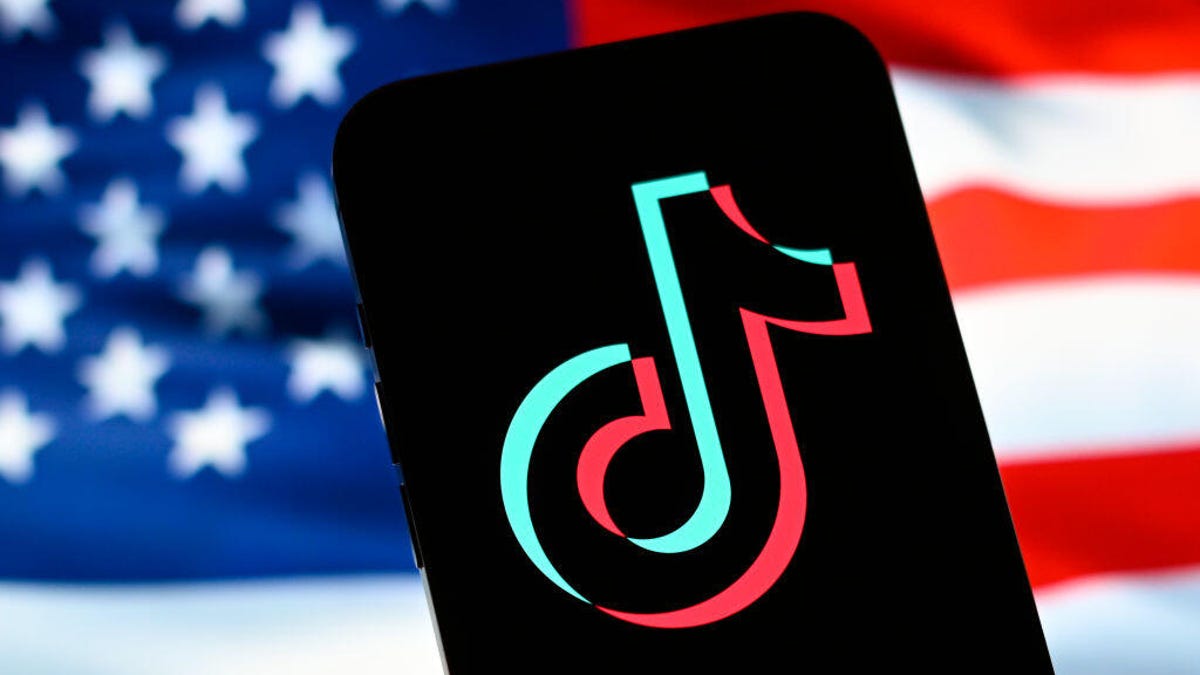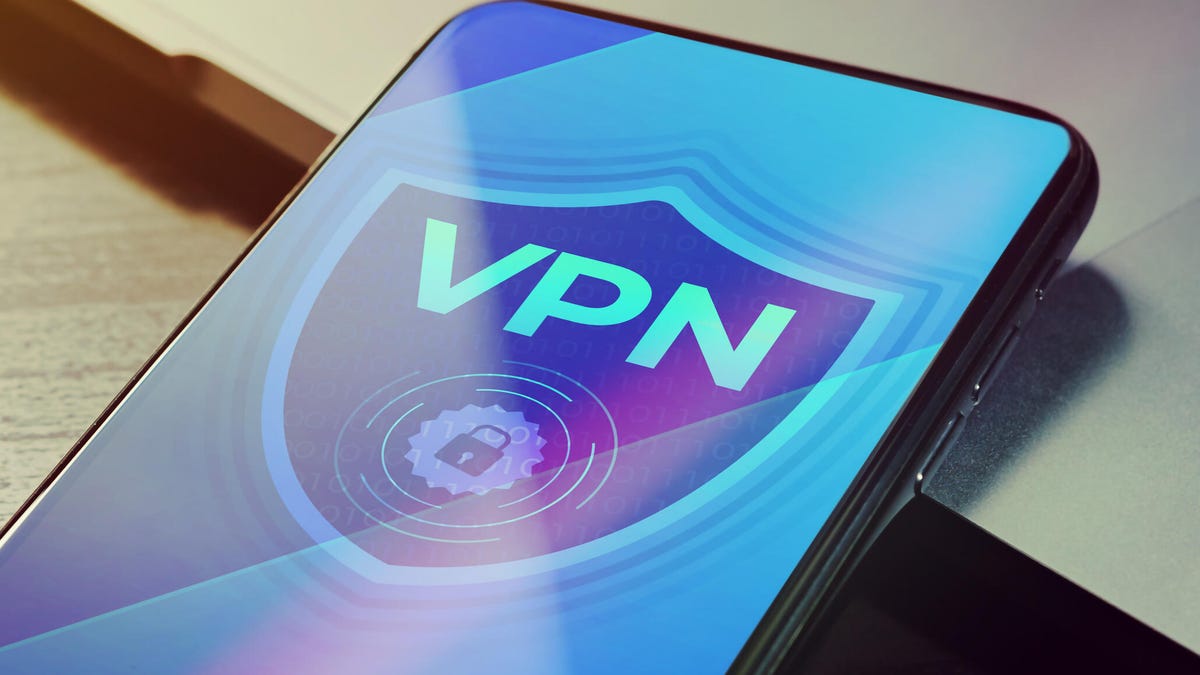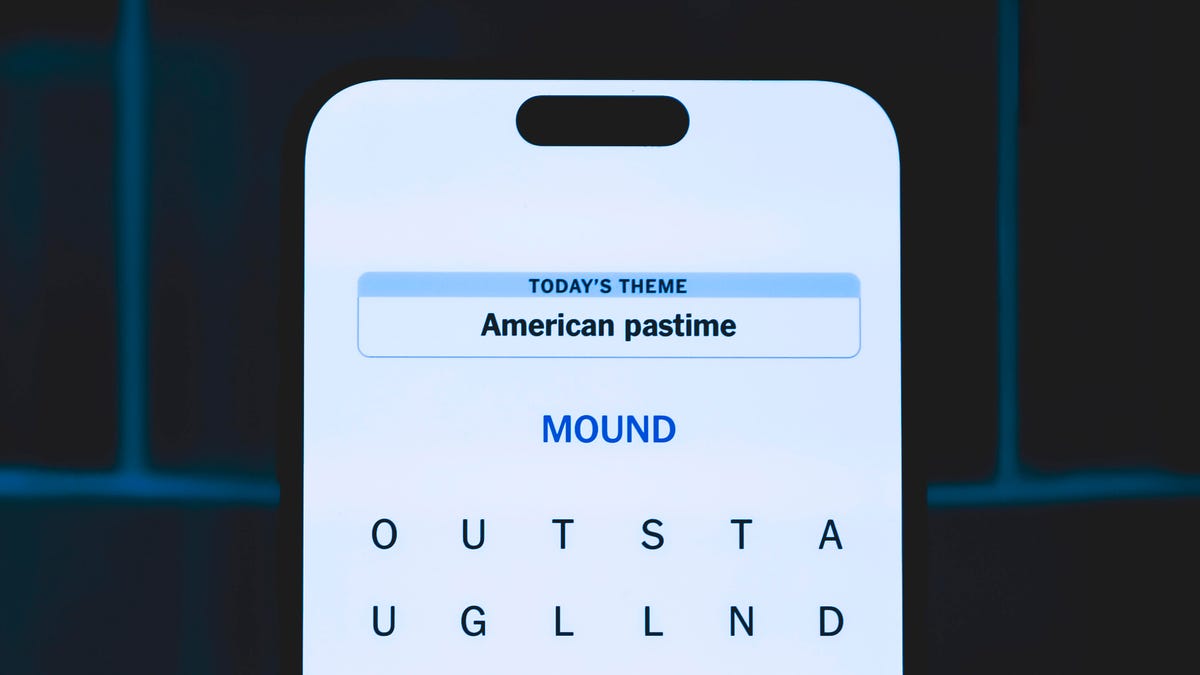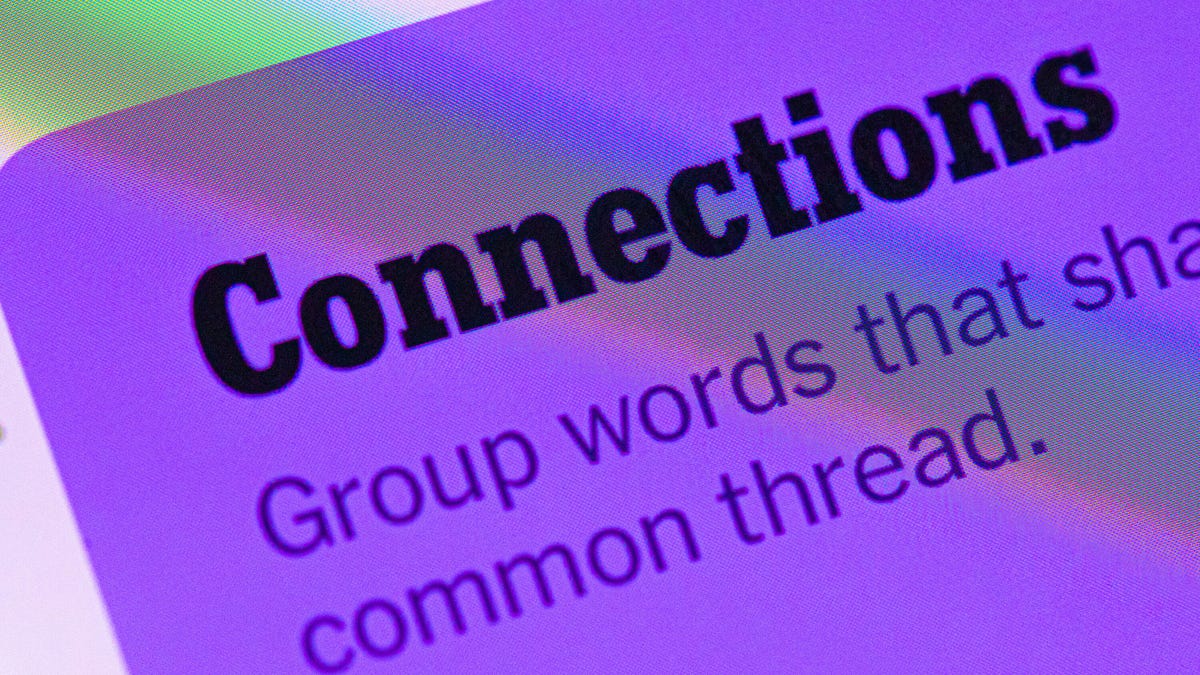Technologies
Trump Gives TikTok Another 75 Days to Strike a Sale
The president says he’s signing an executive order to push back enforcement of the ban again, pushing back the previous deadline of Saturday.

President Donald Trump is giving TikTok more time to sell its US operations, saying that «tremendous progress» has been made toward a deal and pushing off enforcement of a ban that was set to kick in Saturday.
In a Friday afternoon Truth Social post, Trump said that despite that progress, the deal still needs more work, so he’s signing an executive order giving TikTok 75 more days, taking the deadline out to June 19. The move prevents the wildly popular video app from potentially going dark in less than a day.
Trump went on to say that his administration will continue to work with China and credited the tariffs he enacted earlier this week, calling them «the most powerful economic tool» and «very important» to national security.
«We do not want TikTok to ‘go dark,'» Trump said in his post. «We look forward to working with TikTok and China to close the Deal.»
Both TikTok and the Chinese government have long opposed a sale of the company’s US operations and it remains unclear as to if their positions have changed. TikTok didn’t immediately return an email seeking comment.
Read more: TikTok Backups: 6 Similar Apps for Your Daily Dose of Fun
China on Friday reacted to the tariffs Trump spoke of by matching them with its own on US goods, escalating the trade war between the two countries and sending stock markets around the world tumbling. The Dow Jones Industrial Average plunged more than 2,200 points and the Nasdaq composite lost 5.8% in afternoon trading — its biggest drop in five years.
The TikTok ban delay wasn’t unexpected. Several potential bidders for TikTok’s US operations have made their interest known in just the past few days, and Trump has been meeting with administration officials this week to discuss possible deals and ownership structures.
According to recent reporting by The New York Times, one plan included private equity firm Blackstone and the tech company Oracle, while another involved a last-minute bid from Amazon.
Lawmakers in both political parties have long voiced concerns that TikTok could be a threat to national security and could be used by the Chinese government to spy on Americans or spread disinformation to further China’s agenda. TikTok continues to deny those accusations.
The law requiring the sale was passed by Congress last year with overwhelming bipartisan support and signed into law by then-President Joe Biden. Free speech and other groups sued to overturn the law on First Amendment grounds, but it was upheld by the US Supreme Court in January.
So what’s next for TikTok? Here’s what you need to know.
What does the law do?
The law aims to force TikTok’s China-based parent company, ByteDance, to sell to a buyer American officials are OK with and guarantee that ByteDance no longer has access to US user data or control over the TikTok algorithm.
TikTok was given nine months to comply, hence the original Jan. 19 sale deadline, at which point the government could require the removal of its app from US app stores and that other tech companies stop supporting the app and website.
TikTok shut down in the US the night of Jan. 18, citing the ban, but came back online the next morning after Trump made assurances that he would not immediately enforce it. Trump later formalized that promise by signing an executive order that directed the attorney general to not enforce the ban for 75 days, effectively moving the deadline to April 5.
The new executive order pushes the deadline back to June 19, which is Juneteenth, a federal holiday.
Read more: TikTok Loves to Give Financial Advice. But Don’t Believe Everything You Hear
What’s Trump’s take?
After originally calling for a ban during his first presidency, Trump said during the 2024 campaign that he wasn’t in favor of one and pledged to «save TikTok,» though he didn’t specify how he’d do that.
Trump told the press on Sunday that «there’s tremendous interest in TikTok.» He added that he would «like to see TikTok remain alive.» The president also said that «we have a lot of potential buyers» and that his administration is «dealing with China,» which has long opposed a sale.
On March 26, Trump said he would consider lowering tariffs on Chinese goods if that country’s government approved a sale of TikTok’s US operations. He also at that time reiterated his willingness to push the deadline back if needed.
Trump also has floated the idea of the US taking a 50% stake in the company as part of a joint venture, but hasn’t given specifics as to how that would work.
TikTok CEO Shou Chew was one of several high-profile tech executives to attend Trump’s inauguration in January, just hours before Trump would sign the order granting the 75-day extension.
Previous to that, during a press conference in December, Trump pointed to the role TikTok played during the election, crediting it with helping him pick up the votes of young people.
«TikTok had an impact, and so we’re taking a look at it,» Trump said. «I have a little bit of a warm spot in my heart. I’ll be honest.»
Technologies
Wisconsin Reverses Decision to Ban VPNs in Age-Verification Bill
The law would have required websites to block VPN users from accessing «harmful material.»

Following a wave of criticism, Wisconsin lawmakers have decided not to include a ban on VPN services in their age-verification law, making its way through the state legislature.
Wisconsin Senate Bill 130 (and its sister Assembly Bill 105), introduced in March 2025, aims to prohibit businesses from «publishing or distributing material harmful to minors» unless there is a reasonable «method to verify the age of individuals attempting to access the website.»
One provision would have required businesses to bar people from accessing their sites via «a virtual private network system or virtual private network provider.»
A VPN lets you access the internet via an encrypted connection, enabling you to bypass firewalls and unblock geographically restricted websites and streaming content. While using a VPN, your IP address and physical location are masked, and your internet service provider doesn’t know which websites you visit.
Wisconsin state Sen. Van Wanggaard moved to delete that provision in the legislation, thereby releasing VPNs from any liability. The state assembly agreed to remove the VPN ban, and the bill now awaits Wisconsin Governor Tony Evers’s signature.
Rindala Alajaji, associate director of state affairs at the digital freedom nonprofit Electronic Frontier Foundation, says Wisconsin’s U-turn is «great news.»
«This shows the power of public advocacy and pushback,» Alajaji says. «Politicians heard the VPN users who shared their worries and fears, and the experts who explained how the ban wouldn’t work.»
Earlier this week, the EFF had written an open letter arguing that the draft laws did not «meaningfully advance the goal of keeping young people safe online.» The EFF said that blocking VPNs would harm many groups that rely on that software for private and secure internet connections, including «businesses, universities, journalists and ordinary citizens,» and that «many law enforcement professionals, veterans and small business owners rely on VPNs to safely use the internet.»
More from CNET: Best VPN Service for 2026: VPNs Tested by Our Experts
VPNs can also help you get around age-verification laws — for instance, if you live in a state or country that requires age verification to access certain material, you can use a VPN to make it look like you live elsewhere, thereby gaining access to that material. As age-restriction laws increase around the US, VPN use has also increased. However, many people are using free VPNs, which are fertile ground for cybercriminals.
In its letter to Wisconsin lawmakers prior to the reversal, the EFF argued that it is «unworkable» to require websites to block VPN users from accessing adult content. The EFF said such sites cannot «reliably determine» where a VPN customer lives — it could be any US state or even other countries.
«As a result, covered websites would face an impossible choice: either block all VPN users everywhere, disrupting access for millions of people nationwide, or cease offering services in Wisconsin altogether,» the EFF wrote.
Wisconsin is not the only state to consider VPN bans to prevent access to adult material. Last year, Michigan introduced the Anticorruption of Public Morals Act, which would ban all use of VPNs. If passed, it would force ISPs to detect and block VPN usage and also ban the sale of VPNs in the state. Fines could reach $500,000.
Technologies
Today’s NYT Strands Hints, Answers and Help for Feb. 21 #720
Here are hints and answers for the NYT Strands puzzle for Feb. 21, No. 720.

Looking for the most recent Strands answer? Click here for our daily Strands hints, as well as our daily answers and hints for The New York Times Mini Crossword, Wordle, Connections and Connections: Sports Edition puzzles.
Today’s NYT Strands puzzle might be easy for those who pursue a certain hobby. Some of the answers are difficult to unscramble, so if you need hints and answers, read on.
I go into depth about the rules for Strands in this story.
If you’re looking for today’s Wordle, Connections and Mini Crossword answers, you can visit CNET’s NYT puzzle hints page.
Read more: NYT Connections Turns 1: These Are the 5 Toughest Puzzles So Far
Hint for today’s Strands puzzle
Today’s Strands theme is: The beer necessities.
If that doesn’t help you, here’s a clue: Cheers!
Clue words to unlock in-game hints
Your goal is to find hidden words that fit the puzzle’s theme. If you’re stuck, find any words you can. Every time you find three words of four letters or more, Strands will reveal one of the theme words. These are the words I used to get those hints but any words of four or more letters that you find will work:
- MALE, TREAT, STEAM, TEAM, MOVE, LOVE, ROVE, ROVER, SPEAR, PEAR
Answers for today’s Strands puzzle
These are the answers that tie into the theme. The goal of the puzzle is to find them all, including the spangram, a theme word that reaches from one side of the puzzle to the other. When you have all of them (I originally thought there were always eight but learned that the number can vary), every letter on the board will be used. Here are the nonspangram answers:
- HOPS, WATER, MALT, YEAST, BARLEY, SUGAR, WHEAT, FLAVOR
Today’s Strands spangram
Today’s Strands spangram is HOMEBREW. To find it, start with the H that’s three letters to the right on the top row, and wind down.
Technologies
Today’s NYT Connections Hints, Answers and Help for Feb. 21, #986
Here are some hints and the answers for the NYT Connections puzzle for Feb. 21 #986.

Looking for the most recent Connections answers? Click here for today’s Connections hints, as well as our daily answers and hints for The New York Times Mini Crossword, Wordle, Connections: Sports Edition and Strands puzzles.
Today’s NYT Connections puzzle features another of those purple categories where you need to look for hidden words inside of other words. It can be a real stumper. Read on for clues and today’s Connections answers.
The Times has a Connections Bot, like the one for Wordle. Go there after you play to receive a numeric score and to have the program analyze your answers. Players who are registered with the Times Games section can now nerd out by following their progress, including the number of puzzles completed, win rate, number of times they nabbed a perfect score and their win streak.
Read more: Hints, Tips and Strategies to Help You Win at NYT Connections Every Time
Hints for today’s Connections groups
Here are four hints for the groupings in today’s Connections puzzle, ranked from the easiest yellow group to the tough (and sometimes bizarre) purple group.
Yellow group hint: Rookies don’t have this.
Green group hint: Call the roll.
Blue group hint: How’d you do today?
Purple group hint: Vroom-vroom, but with a twist.
Answers for today’s Connections groups
Yellow group: Experience.
Green group: Attendance status.
Blue group: Commentary about your Connections results.
Purple group: Car brands plus two letters.
Read more: Wordle Cheat Sheet: Here Are the Most Popular Letters Used in English Words
What are today’s Connections answers?
The yellow words in today’s Connections
The theme is experience. The four answers are background, history, life and past.
The green words in today’s Connections
The theme is attendance status. The four answers are absent, excused, late and present.
The blue words in today’s Connections
The theme is commentary about your Connections results. The four answers are great, perfect, phew and solid.
The purple words in today’s Connections
The theme is car brands plus two letters. The four answers are audits (Audi), Dodgers (Dodge), Infinitive (Infiniti) and Minion (Mini).
-

 Technologies3 года ago
Technologies3 года agoTech Companies Need to Be Held Accountable for Security, Experts Say
-

 Technologies3 года ago
Technologies3 года agoBest Handheld Game Console in 2023
-

 Technologies3 года ago
Technologies3 года agoTighten Up Your VR Game With the Best Head Straps for Quest 2
-

 Technologies4 года ago
Technologies4 года agoBlack Friday 2021: The best deals on TVs, headphones, kitchenware, and more
-

 Technologies5 лет ago
Technologies5 лет agoGoogle to require vaccinations as Silicon Valley rethinks return-to-office policies
-

 Technologies5 лет ago
Technologies5 лет agoVerum, Wickr and Threema: next generation secured messengers
-

 Technologies4 года ago
Technologies4 года agoOlivia Harlan Dekker for Verum Messenger
-

 Technologies4 года ago
Technologies4 года agoiPhone 13 event: How to watch Apple’s big announcement tomorrow
